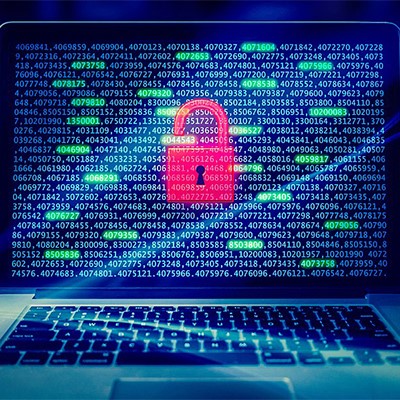
The pharmaceutical sector encounters intricate data security challenges in its IT setup, encompassing data sensitivity, regulatory compliance, cybersecurity threats, supply chain risks, and insider threats. Addressing these issues necessitates implementing strong access controls, adhering to compliance standards, employing cybersecurity protocols, scrutinizing the supply chain, and providing comprehensive employee training. To ensure operational integrity and safeguard sensitive information, a continual commitment to adaptation, collaboration, and investment in advanced technologies is indispensable.

The pharmaceutical industry faces several data security challenges in its IT infrastructure, primarily related to safeguarding sensitive information. The nature of the data, regulatory requirements, and the increasing sophistication of cyber threats contribute to these challenges. Here are some key data security challenges in pharma IT and strategies to address them:
Data Sensitivity:
Regulatory Compliance:
Cybersecurity Threats:
Supply Chain Risks:
Insider Threats:
Data Encryption:
Emerging Technologies:
Incident Response and Recovery:
Pharmaceutical companies need to adopt a proactive and comprehensive approach to data security, involving a combination of technology, policies, and ongoing education. Regularly reassessing and updating security measures is crucial in the ever-evolving landscape of cybersecurity threats.
Ensuring robust data security in the pharmaceutical industry's IT landscape requires a comprehensive and proactive approach due to the dynamic nature of cybersecurity threats and the unique challenges posed by the industry. In addition to the strategies mentioned earlier, the following aspects should be considered to strengthen the overall data security posture:
International Collaboration and Information Sharing:
Collaboration among pharmaceutical companies, regulatory bodies, and cybersecurity organizations can enhance collective efforts in addressing emerging threats. Sharing threat intelligence and best practices can lead to a more informed and unified defense against cyber threats. Establishing industry-wide standards for data security can also contribute to a more resilient pharmaceutical IT ecosystem.
Continuous Employee Training and Awareness:
In the dynamic realm of cybersecurity threats, continuous training and awareness programs for employees are crucial. This involves keeping staff informed about the latest phishing techniques, social engineering tactics, and other risks in the cybersecurity landscape. Establishing a culture of cybersecurity awareness enables pharmaceutical companies to empower their workforce, encouraging proactive defense against potential threats.
Data Resilience and Backup Strategies:
Ensuring data resilience is crucial in mitigating the impact of potential breaches. Implementing regular data backups, both on-premises and in secure cloud environments, can facilitate quick recovery in the event of a security incident. Regular testing of data restoration procedures ensures that critical information can be recovered efficiently without compromising data integrity.
Blockchain Technology for Data Integrity:
Exploring the potential of blockchain technology can enhance data integrity and traceability in the pharmaceutical sector. Implementing blockchain for certain aspects of data management, such as supply chain visibility and clinical trial data, can create a tamper-resistant and transparent system, reducing the risk of data manipulation.
Government and Industry Collaboration on Regulations:
Government bodies and industry stakeholders should collaborate to establish and update regulations that address the unique challenges of data security in the pharmaceutical sector. The development of clear and adaptive regulatory frameworks can help companies align their security measures with industry standards and legal requirements.
Ethical Hacking and Penetration Testing:
Regularly conducting ethical hacking and penetration testing can identify vulnerabilities in IT systems before malicious actors exploit them. Engaging ethical hackers to simulate cyber attacks allows organizations to strengthen their defenses and address weaknesses proactively. This practice should be complemented by a continuous improvement process to adapt to evolving threats.
Investment in Advanced Threat Detection Technologies:
To stay abreast of evolving threats, it is imperative to invest in cutting-edge threat detection technologies. Allocating resources to advanced tools like artificial intelligence (AI) and machine learning (ML) can significantly bolster the capability to identify and respond to intricate cyber threats. These technologies excel in analyzing patterns, spotting anomalies, and delivering real-time alerts, facilitating a proactive defense strategy.
In summary, the pharmaceutical sector must stay alert and flexible in addressing the dynamic challenges of data security. By integrating technological advancements, ensuring regulatory compliance, and fostering a knowledgeable and well-trained workforce, pharmaceutical companies can establish a robust defense against cyber threats. Consistent assessments, updates, and collaborative efforts will play a pivotal role in navigating the intricate terrain of data security within the pharmaceutical IT sector, safeguarding sensitive information, and upholding operational integrity.